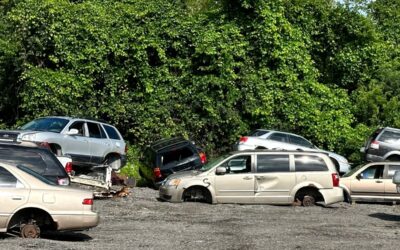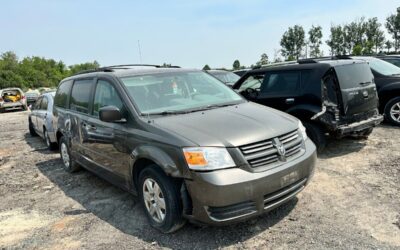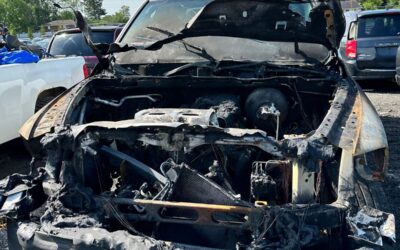Introduction: Understanding Ontario Used Car Taxes
When purchasing a car in Ontario, you’ll need to pay tax. The tax rules apply whether you buy from a dealer or a private seller. You’ll pay a 13% sales tax on whichever is higher — the price you paid or the province’s determined wholesale value. A buyer then registers the vehicle and pays retail tax, if applicable, and the dealer just adds Harmonized Sales Tax (HST) at the time of sale.
Some transactions and gifted vehicles may not have to pay tax. The guide provides details on how tax works, how to calculate it, who is responsible for paying tax, and how some exemptions work. This will help you avoid confusion and prevent unnecessary costs.
Ontario Car Tax When Buying from a Licensed Dealer
If you purchase a used vehicle from a licensed dealer in Ontario:
-
- A 13% HST is applied to the total purchase price.
- The dealer collects that tax at the time of purchase.
- After that, you won’t need to pay any additional tax during registration.
This process is simple and convenient because the dealer handles both the paperwork and taxes simultaneously.
Example:
Vehicle price: $15,000
HST = 13% of $15,000 = $1,950
Total price paid: $16,950
Ontario Car Tax for Private Used Car Sales
When you purchase a vehicle from a private individual:
The private seller does not collect or charge any tax.
You must pay 13% Retail Sales Tax (RST) at ServiceOntario when registering the vehicle.
The amount of tax you owe will be based on whichever is greater:
-
- The amount paid (bill of sale); or
- The wholesale value as indicated in the Canadian Red Book
Even if you buy the vehicle at a lower price, you’ll still be taxed on the Red Book value if it’s higher.
Example:
Purchase price: $8,000
Red Book value: $9,200
RST = 13% of $9,200 = $1,196
You pay $1,196 in tax at registration.
Canadian Red Book Value: How It Affects Ontario Car Tax
The Canadian Red Book provides wholesale values for used vehicles. ServiceOntario uses this value to establish the taxable amount during registration. If your purchase price is lower than the Red Book value, ServiceOntario will always use the higher Red Book value for tax. You cannot reduce your tax by declaring a lower amount on the bill of sale. The Red Book value will take priority unless you provide an approved appraisal. Many buyers use the Canadian Red Book as a quick Ontario car tax calculator to estimate what they’ll owe before registration.
Also Read: Scrap Car Removal Laws Across Canadian Provinces: What to Expect
How Vehicle Appraisals Can Lower Your Ontario Car Tax
In some cases, the Red Book value may be too high for a vehicle in poor condition (for example, if it’s damaged, high-mileage, or rusted). In those cases:
-
- Obtain a written appraisal from a licensed dealer or appraiser.
- Send it to ServiceOntario along with your registration documents.
- Tax will then be based on the greater of: Your purchase price or the appraised value.
This helps you avoid overpaying tax on a car that’s worth less than its listed wholesale value.
When Ontario Car Tax Is Based on Actual Sale Price
If the Red Book value is under $1,000 and the purchase price is also under $1,000:
-
- The tax is charged based on the actual amount you paid.
- You don’t need to get an appraisal.
This is common with very old cars or cars sold for parts.
Who Pays Tax When Buying a Used Car in Ontario?
The buyer is always responsible for paying the tax:
Dealers take care of tax collection and include it in their invoice.
In private sales, the buyer pays the tax at a ServiceOntario centre when registering the vehicle.
In a private sale, the seller is not responsible for collecting any tax.
Ontario Car Tax Exemptions for Used Car Purchases
Some situations allow buyers to skip the 13% tax. These include:
Family Gift Transfers
If a used car is gifted between close family members, the recipient may be exempt from paying tax. Eligible relationships include:
-
- Spouses
- Parents and children
- Siblings
- Grandparents and grandchildren
- Step-relatives in the same categories
You must submit a Sworn Statement for a Family Gift of a Used Vehicle in Ontario at ServiceOntario to claim the exemption.
Vehicles Transferred to a Reserve
If the buyer is a Status Indian and the vehicle is delivered and registered on a reserve:
-
- The provincial portion (8%) may be exempt.
- In some cases, the full 13% tax is waived.
You’ll need to provide a Certificate of Indian Status and proof that the vehicle was delivered and registered on reserve land.
Diplomatic and Government Exemptions
There is a possible exemption from vehicle taxes for diplomats and certain government officials. The applicable proof of exemption must be provided when purchasing or registering the vehicle.
Other Costs When Buying a Used Car in Ontario
When buying a used car in Ontario, tax is not the only expense. Prepare for:
-
- Vehicle registration fee: Approximately $32
- Used Vehicle Information Package (UVIP): Required for private sales $20
- Safety Standards Certificate: Required unless it was already provided, and this, depending on where you take the vehicle to get the certificate, could cost you around $100-150.
How to Claim a Refund on Ontario Car Tax
Refunds are only possible in specific cases:
-
- You paid tax based on the Red Book value, but later got a lower appraisal.
- You can request a refund from the Ministry of Finance within 60 days of paying the tax.
- You’ll need to submit the appraisal report and proof of tax payment.
You cannot request a refund simply because you later resell the vehicle or change your mind.
Also Read: The Scrap Car Glossary: Key Terms You Should Know
Checklist: Preparing to Buy a Used Car in Ontario
To avoid surprises and additional expenses:
-
- Verify the Canadian Red Book value before proceeding with the transaction.
- Always obtain a UVIP in a private sale.
- Request a recent Safety Standards Certificate.
- Always budget for a 13% tax, even if the car seems like a great deal.
- If the vehicle is damaged, obtain a proper appraisal before registering it.
Final Thoughts on Ontario Used Car Taxes
In Ontario, when purchasing a used vehicle, you are required to pay 13% taxes on either the purchase price or the Red Book value. If you are purchasing from a dealer, the taxes will be included in the invoice. If you purchase from a private seller, you will pay the taxes upon registration.
In certain cases, such as family-related transfers or special exemptions, the 13% tax may not apply. Understanding these rules beforehand ensures you don’t overpay in taxes and helps you better manage your total vehicle costs.
Frequently Asked Questions (FAQ) About Ontario Used Car Tax
1. Do I have to pay tax when buying a used car in Ontario?
Yes, buyers must pay 13% tax in Ontario. If buying from a dealer, the tax is HST included in the invoice. For private sales, you pay 13% Retail Sales Tax (RST) at ServiceOntario when registering the car.
2. How is the tax calculated on a private car purchase?
The tax is calculated on the higher of:
-
- The price you paid (bill of sale), or
- The Canadian Red Book wholesale value of the car.
3. Can I avoid paying tax on a used car in Ontario?
Some transactions are tax-exempt, such as family transfers, vehicles delivered to a reserve, or diplomatic/government purchases. Proof and forms are required for exemptions.
4. What is the Canadian Red Book, and why does it matter for tax?
The Canadian Red Book lists the wholesale values of used vehicles. ServiceOntario uses it to determine the taxable value if your purchase price is lower.
5. Can I reduce my tax if the car is damaged or in poor condition?
Yes. You can get a vehicle appraisal from a licensed dealer or appraiser and present it to ServiceOntario. Tax will then be based on the higher of the purchase price or appraised value, not the Red Book value.
6. Can I get a refund if I overpaid tax on a used car?
Yes, if you overpaid due to Red Book value and later provided an approved appraisal, you can apply for a refund from the Ministry of Finance within 60 days.





